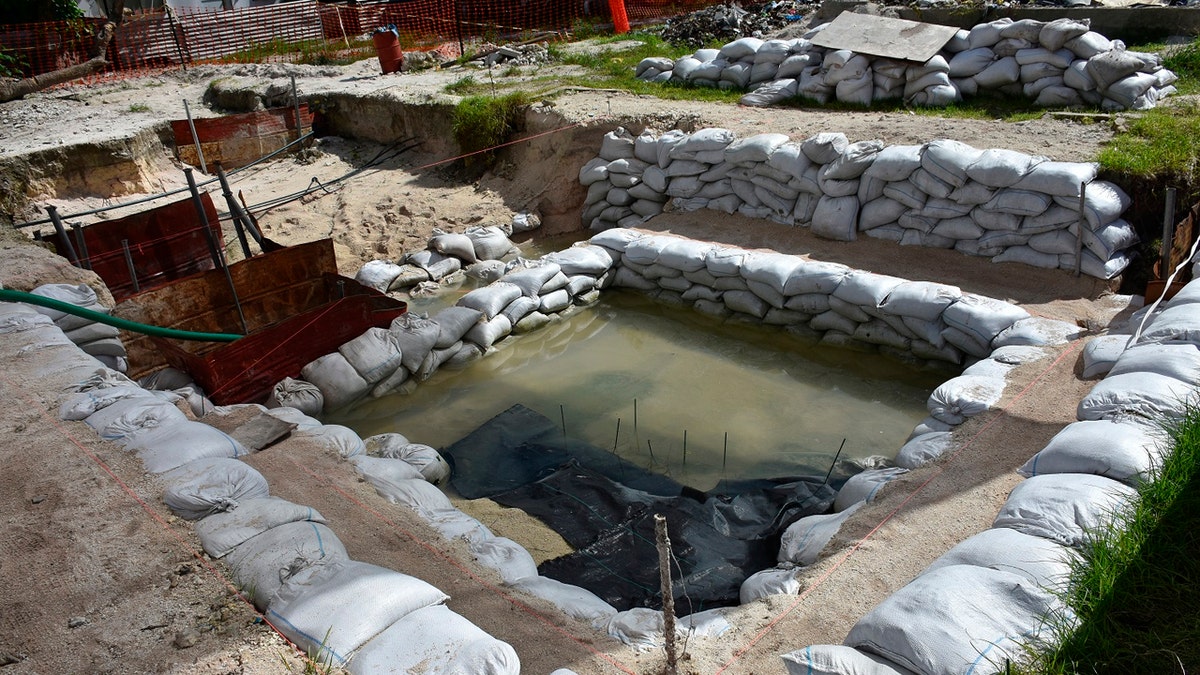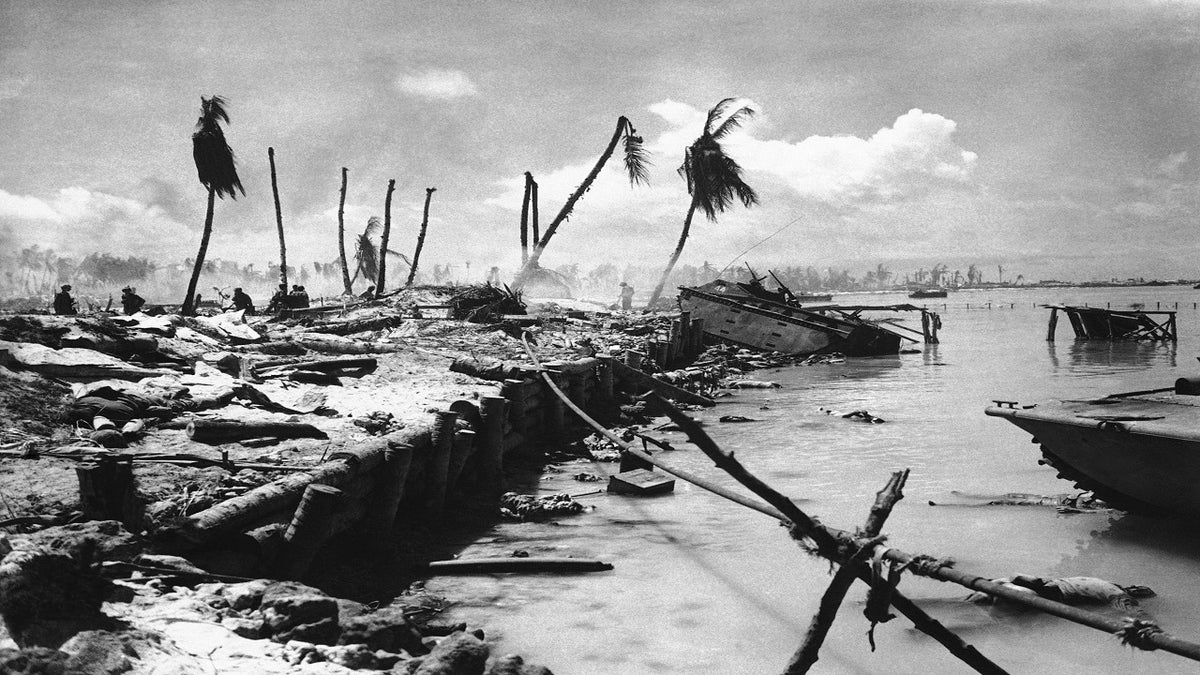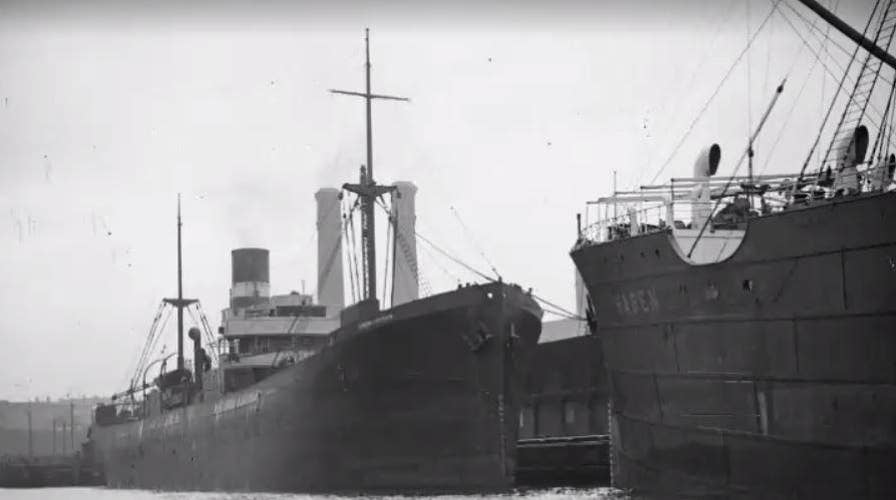WWII shipwreck discovered off Australian coast
The SS Iron Crown, an Australian freighter sunk by a Japanese submarine during World War II, has been discovered.
Several graves containing what are likely the remains of more than 30 U.S. Marines and sailors killed during one of the bloodiest battles of World War II were discovered on a remote Pacific island, officials said.
History Flight, a nonprofit organization that works to search for and identify the remains of U.S. servicemen who were lost in past conflicts, located a series of graves on the Pacific atoll of Tarawa in March that officials believe contain the remains of members of the 6th Marine Regiment killed on the final night of the Battle of Tarawa on Nov. 23, 1943.
President Mark Noah said the latest discovery is apart of a mission to recover the at least 270 missing remains which have yet to be found on the island.

This June 1, 2019 photo provided by History Flight shows graves of U.S. servicemen under the water table in Tarawa, Kiribati. (Eric Albertson/Defense POW/MIA Accounting Agency/History Flight via AP)
NAZI SOLDIERS USED PERFORMANCE-ENHANCING 'SUPER-DRUG' IN WORLD WAR II, SHOCKING DOCUMENTARY REVEALS
More than 990 Marines and 30 soldiers were killed during the bloody battle after the U.S. launched an amphibious assault on the Japanese-occupied island some 2,300 miles southwest of Honolulu.
Many were killed when the boats became stuck on the shallow reefs at low tide while others who made it the shore died in brutal hand-to-hand combat.
The mounting deaths forced the U.S. military to bury the fallen in makeshift cemeteries in the exact spots where they were killed but grave markers were removed by the Navy as soldiers hurried to build runways and other infrastructure needed for the U.S. to move forward with its Pacific campaign.

FILE - In this November 1943 file photo, bodies and wrecked amphibious tractors litter a battlefield, after U.S. Marines from the 2nd Division forced back the Japanese on Betio island in the Tarawa Atoll, Kiribati. (AP Photo, File)
Since 2015, History Flight has worked with the Department of Defense to recover the remains of more than 272 individuals from the island which is now a part of the Republic of Kiribati.
Some of the remains were initially excavated in the late 1940s by the Army Graves Registration Service but Dr. John Byrd, director of the agency's laboratories, said partial remains were left behind which now requires them to make additional identifications with the those already buried as "unknowns" in a national cemetery in Honolulu.
CLICK HERE TO GET THE FOX NEWS APP
The local government recently allowed the demo of a building where the latest graves were located beneath the rubble. Some graves are beneath the water table which requires search teams to pump out the water daily in order to excavate the site.
The Defense POW/MIA Accounting Agency expects to pick up the remains and fly them to Hawaii next month where military forensic anthropologists will then work to identify them using dental records, DNA and other clues.
The Associated Press contributed to this report.









































